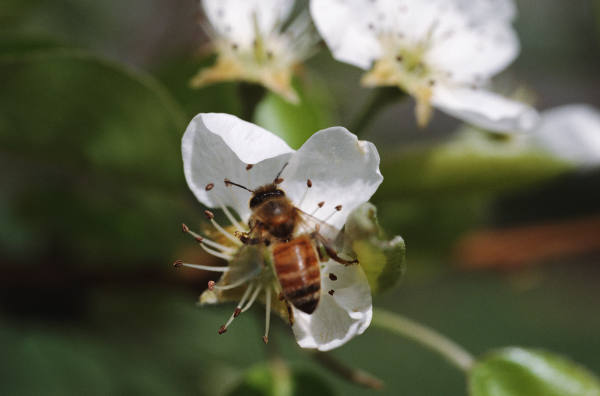
Texas is big in bees.
But Texas, as with other states and countries across the world, is concerned about maintaining healthy colonies of bees for honey production, pollination and sales of queen bees to other beekeepers.
Colony Collapse Disorder also poses a significant threat to worldwide bee populations.
Paul Jackson, with the Texas Apiary Inspection Service, says Texas is among the top 10 states for honey production, pollination service and queen sales. “Texas ships more than 500,000 colonies throughout the year,” Jackson said during the recent Texas Plant Protection Association annual conference in Bryan, Texas.
He reported on a 2011 survey that found Texas bee health was better than normal, compared to national averages. The survey, which analyzed 25 apiaries within Texas and from 14 different counties, showed that a new mite — tropliaelaps, an exotic parasitic mite currently found in Asia and Indonesia — was not present in any of the Texas apiaries analyzed.
Also, 15 samples showed no nosema (a microscopic parasite); mite load on average was 1.6 per 100 bees; 6 apiaries showed no Varroa mites; 5 samples showed no viruses and no nosema; 4 apiaries had Small Hive Beetles and 8 had Black Queen Cell Virus. The apiary size analyzed ranged from 21 colonies to 360 colonies.
“We were pleased that Texas was below the national average in disease and mite infestation,” Jackson said.
But Colony Collapse Disorder is a threat, he added. “We think colony collapse is a combination of factors. We just don’t know exactly what causes it.”
Stress likely plays a role. “Beekeeping has changed drastically from 10 years ago,” he said. “Some beekeepers maintain 60,000 colonies and can move 10,000 colonies to California within a few days.”
He said California often wants bees in “top condition in February. That’s not natural. They need a period of dormancy. Also, when they move often, beekeepers lose bees with every move.”
That kind of stress, Jackson said, may have a lot to do with colony collapse. “But we think it’s a combination of stress, mites, movements and chemicals. Bees don’t just die instantly with colony collapse.” After a stress event or ingesting something in pollen, it could be a month before bees begin to die, he said.
Some have suggested corn syrup as a feed has contributed to Colony Collapse Disorder. “That may have caused some damage,” Jackson said, “but it’s not the whole answer. But many are going back to cane sugar.”
Jackson said Europe also experiences colony collapse. “I think it’s a worldwide problem.”
He said the Texas Apiary Inspection Service was formed more than 70 years ago to respond to another massive threat to the bee industry. “More than 70 percent of our bees were wiped out by disease,” he said.
About the Author(s)
You May Also Like






